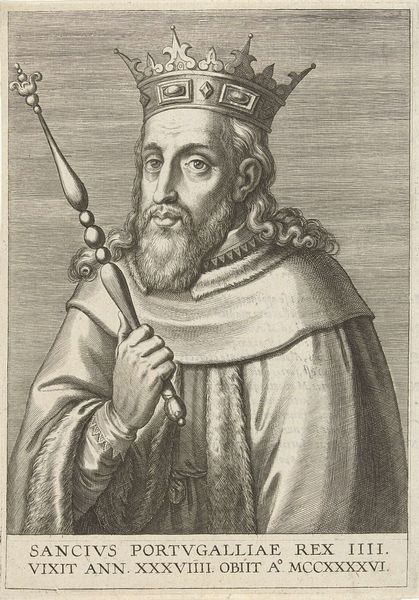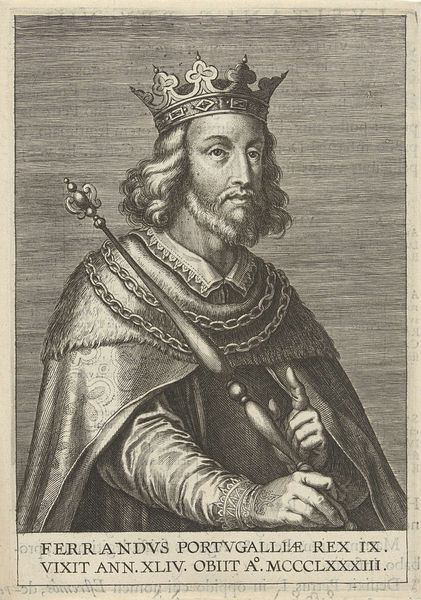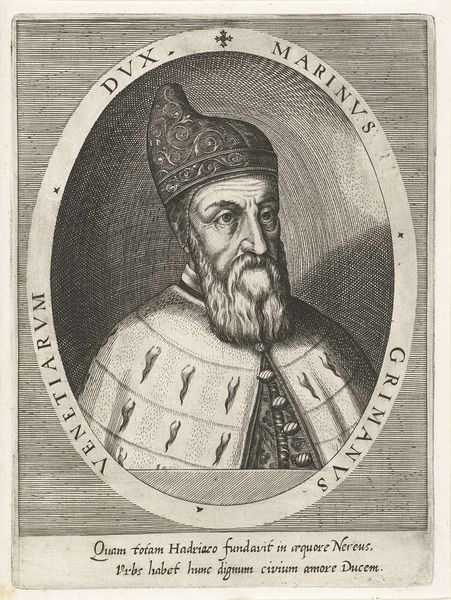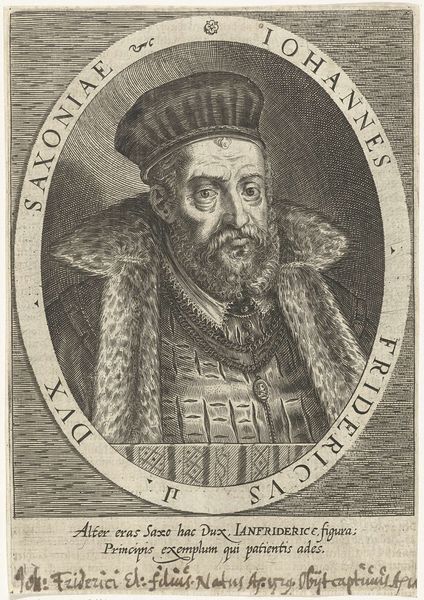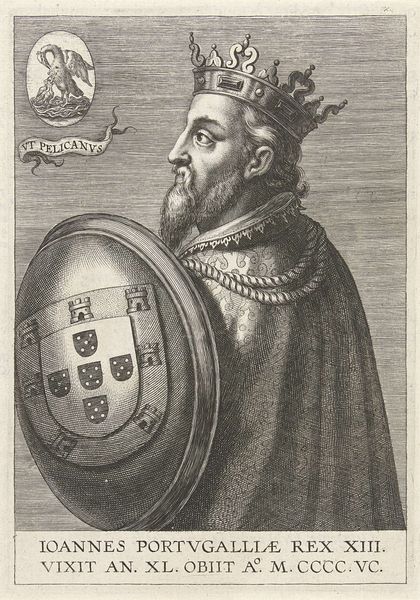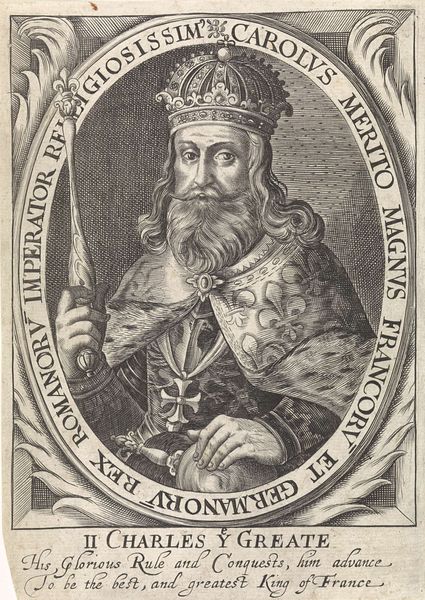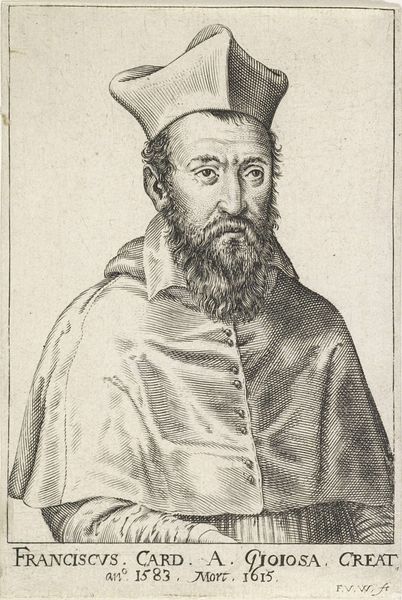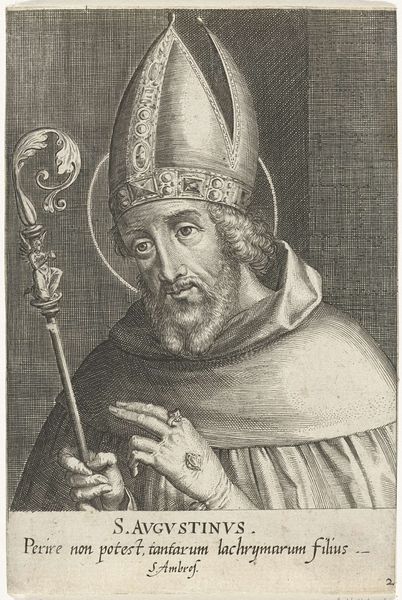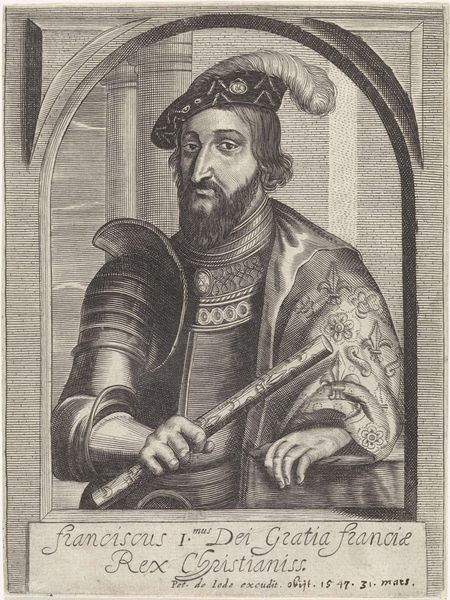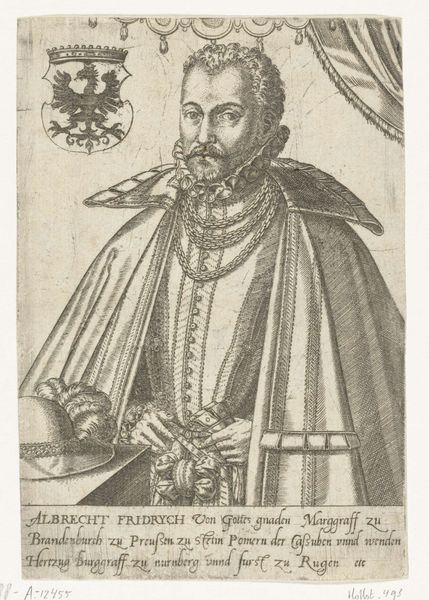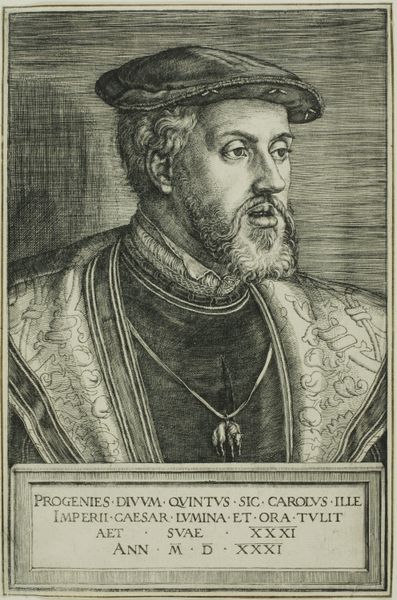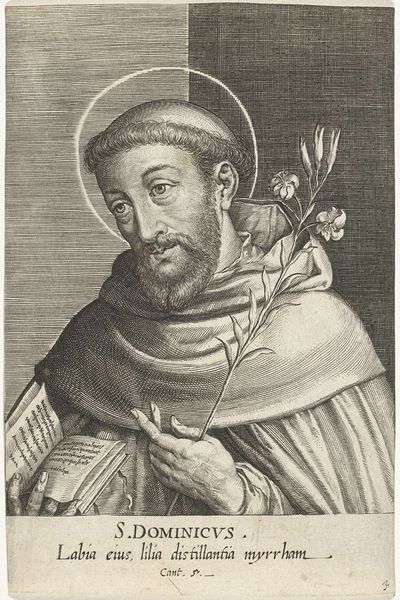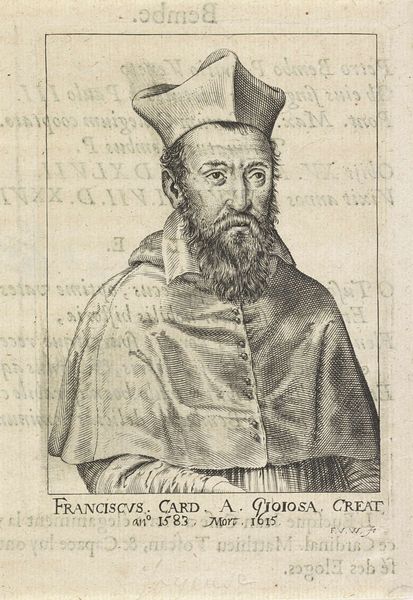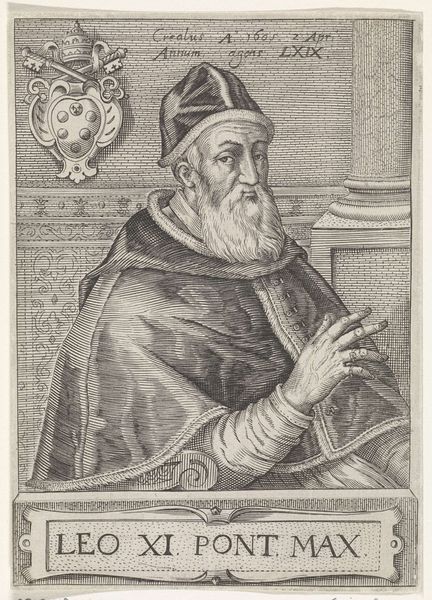
print, engraving
#
portrait
#
baroque
# print
#
old engraving style
#
caricature
#
history-painting
#
engraving
#
portrait art
Dimensions: height 190 mm, width 132 mm
Copyright: Rijks Museum: Open Domain
Curator: Looking at this portrait, I can't help but feel the weight of inherited power pressing down. Editor: Indeed. This is a print from 1621, "Portret van Eduard I koning van Portugal," by Cornelis Galle I, currently residing at the Rijksmuseum. It's an engraving. There's a real crispness to the line work, wouldn't you agree? Curator: Absolutely, and considering it is an engraving the crispness reveals the printmaker’s skill. The paper and ink would have had to be sourced and crafted too. Editor: Right, but how do you read Edward himself, in terms of gender performance or authority, within this image? What claims are being made here about kingship? Curator: I think there's a careful construction of power being performed. Look at the crown, the stiff pose, the royal staff. These objects serve to communicate a divine mandate of power. How else might his leadership and political positions influence such artistic production and style during that era? Editor: Perhaps the intent here isn't just about recording likeness, but actively building and reinforcing a particular narrative of power. What message does that choice of display create? Curator: Good question. The selection, visibility, and preservation of the engraving likely reinforces this idea of inherited and righteous authority. The fact that engravings were multiples adds a layer as well - this image was made to be distributed and viewed by many. Editor: That’s very true. I wonder what an early viewer might have made of it, especially concerning colonial power dynamics and gender expectations linked to representations of power in this image? It prompts further investigation. Curator: Exactly. I think digging into these contextual levels really lets us address it beyond just an image, expanding towards larger implications on art and its consumption through its complex manufacturing.
Comments
No comments
Be the first to comment and join the conversation on the ultimate creative platform.
